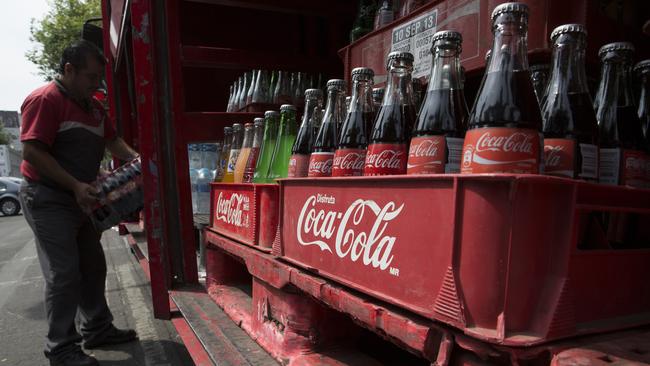It’s time for the sweet talk of a sugar tax to rot away
IF sweetened drinks like sodas and fruit juices are a bad habit, the frequently proposed “sugar tax” remedy, is far worse, writes Fred Pawle.
Rendezview
Don't miss out on the headlines from Rendezview. Followed categories will be added to My News.
IT IS easy to portray sweetened drinks such as sodas, energy drinks and fruit juices as dietary villains.
They are rich in sugary calories and poor in nutrition. To their detractors, they are pushed by greedy multinational corporations onto the gullible, less-enlightened masses.
But if sweetened drinks are a bad habit — and there is plenty of evidence to suggest they are not — the frequently proposed remedy, a “sugar tax”, is worse.
What the anti-sugar campaigners never tell you is that the consumption of sweetened drinks is already declining. Yet they still believe that our increasing rate of obesity will be solved by slapping a tax on cans of Coke, Red Bull and other poor choices made by those blighted souls who stubbornly refuse to drink kale smoothies instead.
There is no evidence that this simplistic policy improves public health, but that doesn’t stop the legislators, bureaucrats and assorted busybodies giving it a try. It’s almost as if they are addicted to the sugary rush they get from telling other people how to behave. Worse, some of them have built entire careers on it, and now want their dirty habit to be financed by taxes on products of which they disapprove.
The tax is being backed by the Greens, who wish to set it at 20 per cent of the soft drink’s retail price, and the Australian Medical Association, which considers it a “matter of priority”.
This cause is also fashionable overseas, having been introduced in a variety of South Pacific nations and some parts of the United States and Europe. Widespread taxes are due to begin in Britain and Ireland in April, thanks mostly to the evangelical efforts of Jamie Oliver.

Such taxes have an abundance of research papers backing them. The Menzies Research Centre has analysed six papers from the past two years, all but one of them Australian. Three of them were financed by grants from the National Health and Medical Research Council, and one each by the Grattan Institute and University of Queensland. The overseas study, an investigation into the sugar tax imposed in Mexico in 2016, is by US and Mexican academics.
Their research, such as it is, is underwhelming. Of the five Australian papers, we found none established a link between the proposed tax and a reduction in obesity.
This is not surprising, given that in Australia obesity is increasing while soft-drink consumption is declining. According to the Australian Bureau of Statistics, 49 per cent of Australians drank sugary soft drinks in 1995; by 2012 that rate had dropped to 42 per cent.
Obesity in Australia, meanwhile, has gone from 11 per cent in 1990 to 25 per cent in 2010, says the OECD.
Australian consumption of sugar is decreasing, but within that the proportion represented by sugary drinks is also decreasing.
“The total mix of added sugars in Australian diets is changing — from soft drinks and sugar sweetened beverages towards other discretionary items like chocolate and confectionery,” says University of Sydney professor of nutrition Jennie Brand-Miller.
Yet under the current proposal the manufacturers of sugary drinks will be burdened with the cost of complying with a tax that will have little or no benefits.
As the busybodies in San Francisco and Philadelphia learned when they introduced a sugar tax, consumers merely went outside the city to buy their unhealthy contraband.
The same would happen here, by either buying in bulk or switching to products that are lucky enough to avoid the tax. People have a healthy habit of defying attempts to control their behaviour, especially when such attempts are made for no good reason.
Fred Pawle is the Communications Director of the Menzies Research Centre.



